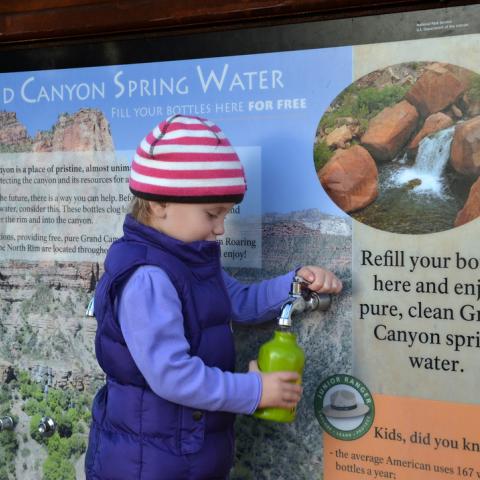
A steam train passes over the wooden ballast bridge above Bright Angel Wash/NPS, Michael Quinn
A nearly century-old railroad ballast bridge at Grand Canyon National Park is in deteriorated condition and needs to be replaced, according to the National Park Service, which is seeking public comment on the matter.
Public comments will be accepted until midnight, March 7.
The wooden ballast bridge, constructed in 1925-26, is in poor condition resulting in safety concerns, the Park Service said. The bridge crosses over Bright Angel Wash, north of the historic Powerhouse building and Village Loop Bypass Road, in Grand Canyon Village. Trains cross daily over this bridge as they travel between Williams, Arizona, and Grand Canyon Village, providing the only train access into a United States national park.
The nearly 100-year-old wooden ballast bridge is a contributing feature to the Grand Canyon Railway Historic District and the Grand Canyon Village National Historic Landmark District. In consultation with the Arizona State Historic Preservation Office, the NPS determined the removal of the wooden ballast bridge would have an adverse effect on the historic districts.
The programmatic agreement was prepared, in consultation with the SHPO, for the removal and replacement of the wooden ballast bridge in accordance with Section 106 of the National Historic Preservation Act. The programmatic agreement defines that any proposed new bridge will be designed to meet Federal Railway Administration standards and be compatible with the affected historic districts.
For more details and to submit comments, visit the NPS Planning, Environment and Public Comment (PEPC) website at: https://parkplanning.nps.gov/SouthRimWoodenBallastBridge and click on "Open for Comment." During the comment period, any individual or group can submit comments electronically through the PEPC project website, the preferred method for submitting comments.




 Support Essential Coverage of Essential Places
Support Essential Coverage of Essential Places







Comments
Not sure why we have to have all this paperwork just to replace a simply bridge.
Sure, ensure the histoical accuracy as best as possible while getting the job done, but it's just not a NATIONAL concern deserving of a EIS-type review/treatment.